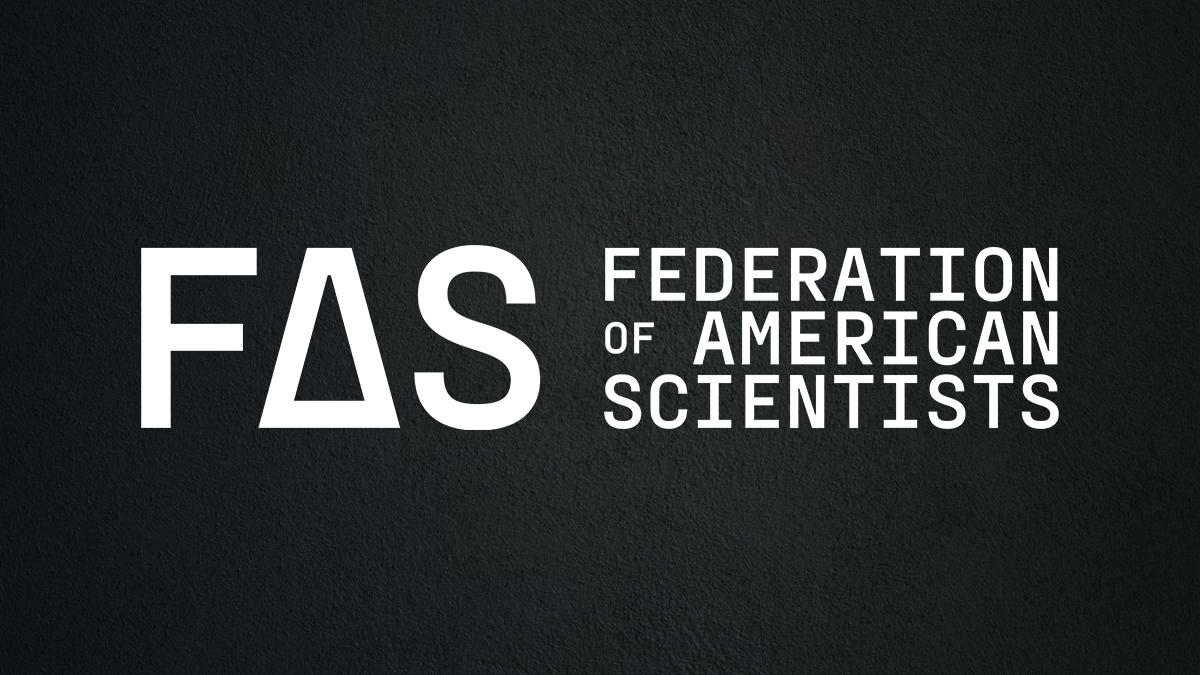
The Federation of American Scientists Brings MetroLab Network Into Organization
June 2, 2025 – The Federation of American Scientists (FAS) is excited to announce it has acquired MetroLab Network (MLN), bringing together two teams with a shared commitment to harnessing science, technology and innovation to drive impact in new ways in communities across the country.
“MetroLab launched ten years ago with a vision to bring technical expertise and breakthrough innovations from the lab into the civic and community space where their impact can be transformational,” FAS CEO Daniel Correa said. “Today, we are teaming up to realize a shared vision, matching the deep science and tech expertise at FAS with Metrolab’s leadership, expertise, and expansive network across civic and university actors. I can’t wait to work hand in hand with Kate and her team to build the next chapter together.”
This move will provide FAS with reach across all levels of government, connecting people, ideas, and initiatives from local communities to federal policies and endeavors. Today’s announcement is the culmination of several months of collaboration and planning, and will bring scale and reach to the work both organizations have been building over the last several years.
“MetroLab has focused on community partnerships and catalytic innovation for a decade. This new chapter will enable that work to grow and scale,” MetroLab’s Kate Garman Burns, who will join FAS as a Director, said. “We work with universities and local governments to bring innovative policy solutions to communities – and that work complements what FAS has been doing at the federal level. I could not be more excited to see what we can do together.”
As part of a new policy team at FAS, MetroLab will bring several existing programs to FAS that will continue and evolve within FAS, including its Civic Innovation Challenge, Mobility Center of Excellence, Local Government R&D Agenda, and Data Governance Policy Guidance. MLN also brings along its impressive network of community partners, including 82 local governments and over 120 universities. In addition, MLN board member Tom Schenk is joining FAS’s board of directors – he was officially elected on May 13.
# # #
MetroLab Network (MLN) drives positive impact in communities by empowering collaboration between two critical public institutions: local government and universities. We believe science and research can live and flourish in cities and their city halls – bringing innovation and solutions to the front door of communities. We believe transformative partnerships between these institutions are a necessary evolution to the innovation and scientific movement of tomorrow. The challenges cities and counties face are complex, and to create transformative change we bring together an ecosystem of research and doers.
The Federation of American Scientists (FAS) works to advance progress on a broad suite of contemporary issues where science, technology, and innovation policy can deliver transformative impact, and seeks to ensure that scientific and technical expertise have a seat at the policymaking table. Established in 1945 by scientists in response to the atomic bomb, FAS continues to bring scientific rigor and analysis to address national challenges. More information about FAS work at fas.org.
To ensure an energy transition that brings broad based economic development, participation, and direct benefits to communities, we need federal policy that helps shape markets. Unfortunately, there is a large gap in understanding of how to leverage federal policy making to support access to capital and credit.
From use to testing to deployment, the scaffolding for responsible integration of AI into high-risk use cases is just not there.
OPM’s new HR 2.0 initiative is entering hostile terrain. Those who have followed federal HR modernization for years desperately want this effort to succeed.
January saw us watching whether the government would fund science. February has been about how that funding will be distributed, regulated, and contested.